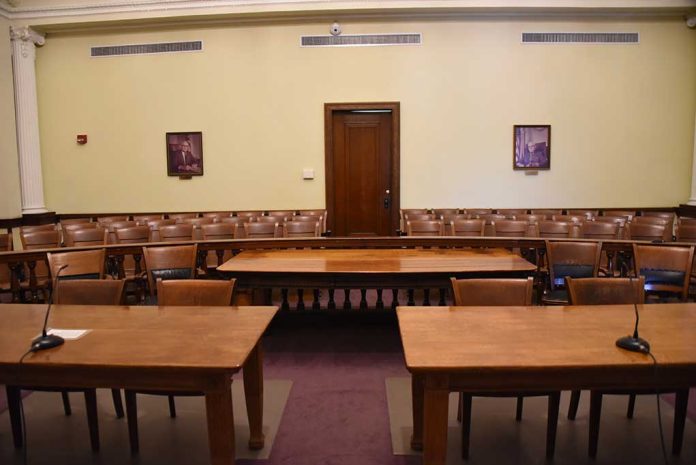
Ukraine and the Council of Europe have established a groundbreaking Special Tribunal aimed at prosecuting Russian officials responsible for the invasion, though critics point out that Vladimir Putin himself may remain beyond reach due to diplomatic immunity.
Key Takeaways
- Ukrainian President Volodymyr Zelenskyy signed an agreement with the Council of Europe establishing a special tribunal to prosecute senior Russian officials for the crime of aggression against Ukraine
- The tribunal will consist of 15 judges and likely be located in The Hague, though it cannot prosecute sitting officials like President Putin due to legal immunity
- The tribunal fills a crucial legal gap left by the International Criminal Court, which lacks jurisdiction over the specific crime of aggression in this case
- President Trump met with Zelenskyy and expressed support for Ukraine, discussing the possibility of providing additional Patriot air defense systems
- The initiative marks the first international court effort specifically targeting Russia’s aggression against Ukraine
Historic Tribunal Agreement Signed
In a significant development for international justice, Ukrainian President Volodymyr Zelenskyy has signed a landmark agreement with the Council of Europe establishing a Special Tribunal for the Crime of Aggression against Ukraine. The accord, signed following a NATO summit, creates the first international court mechanism specifically designed to prosecute senior Russian political and military figures responsible for the invasion of Ukraine. This tribunal represents a critical step in Ukraine’s ongoing efforts to hold Russian leadership accountable for violations of international law and the UN Charter.
The Special Tribunal will consist of 15 judges and will likely be headquartered in The Hague, international justice’s symbolic home. The agreement is open to all 46 members of the Council of Europe as well as other interested nations. Russia, notably, is not among them, having been expelled from the Council following its invasion of Ukraine. The tribunal aims to address the specific crime of aggression, filling a crucial jurisdictional gap left by other international courts like the International Criminal Court (ICC).
READ MORE: https://t.co/WpMnxVRnk3
— NEWSMAX (@NEWSMAX) June 25, 2025
Legal Limitations and Challenges
Despite its ambitious goals, the tribunal faces significant limitations. Most notably, it cannot prosecute sitting heads of state like President Putin due to legal immunity protections. However, the court can still investigate and potentially try other senior Russian and Belarusian officials, possibly even in absentia. The tribunal’s prosecutorial independence has also raised concerns, as the Ukrainian Prosecutor General has been granted sole authority to submit cases for consideration, a compromise that some legal experts view with skepticism.
“This was a necessary compromise,” said Gleb Bogush, international law expert. “This raises serious concerns about impartiality.”
The tribunal’s creation addresses a critical legal gap that has hindered accountability efforts. The International Criminal Court cannot prosecute the crime of aggression in this situation because it requires both affected states to have ratified the Rome Statute. While the ICC has issued arrest warrants for some Russian officials for other war crimes, the specific charge of aggression – considered the “supreme international crime” – remained beyond reach until this new tribunal’s establishment.
Zelenskyy’s Push for Justice and International Support
President Zelenskyy has emphasized that the tribunal represents a critical step toward ensuring accountability for Russia’s actions. During the signing ceremony, he delivered a powerful message about the importance of justice as a fundamental principle that must apply to all perpetrators of war crimes, regardless of their nationality or position. The Ukrainian leader has consistently advocated for comprehensive legal mechanisms to address the full spectrum of crimes committed during the invasion.
“Every war criminal must know: justice will prevail — and that includes Russia,” said Volodymyr Zelenskyy, Ukrainian President. “It will take strong political and legal courage to make sure every Russian war criminal faces justice, including Putin.”
The initiative has garnered support from Western allies, including the United States. During a meeting in The Hague, President Trump discussed with Zelenskyy various forms of support for Ukraine, including the potential provision of additional Patriot air defense systems. The Council of Europe hopes the tribunal will begin its work next year, though significant logistical and diplomatic challenges remain. The tribunal’s establishment sends a clear message about the international community’s commitment to upholding the rule of law, even in the face of aggression by a major world power.









